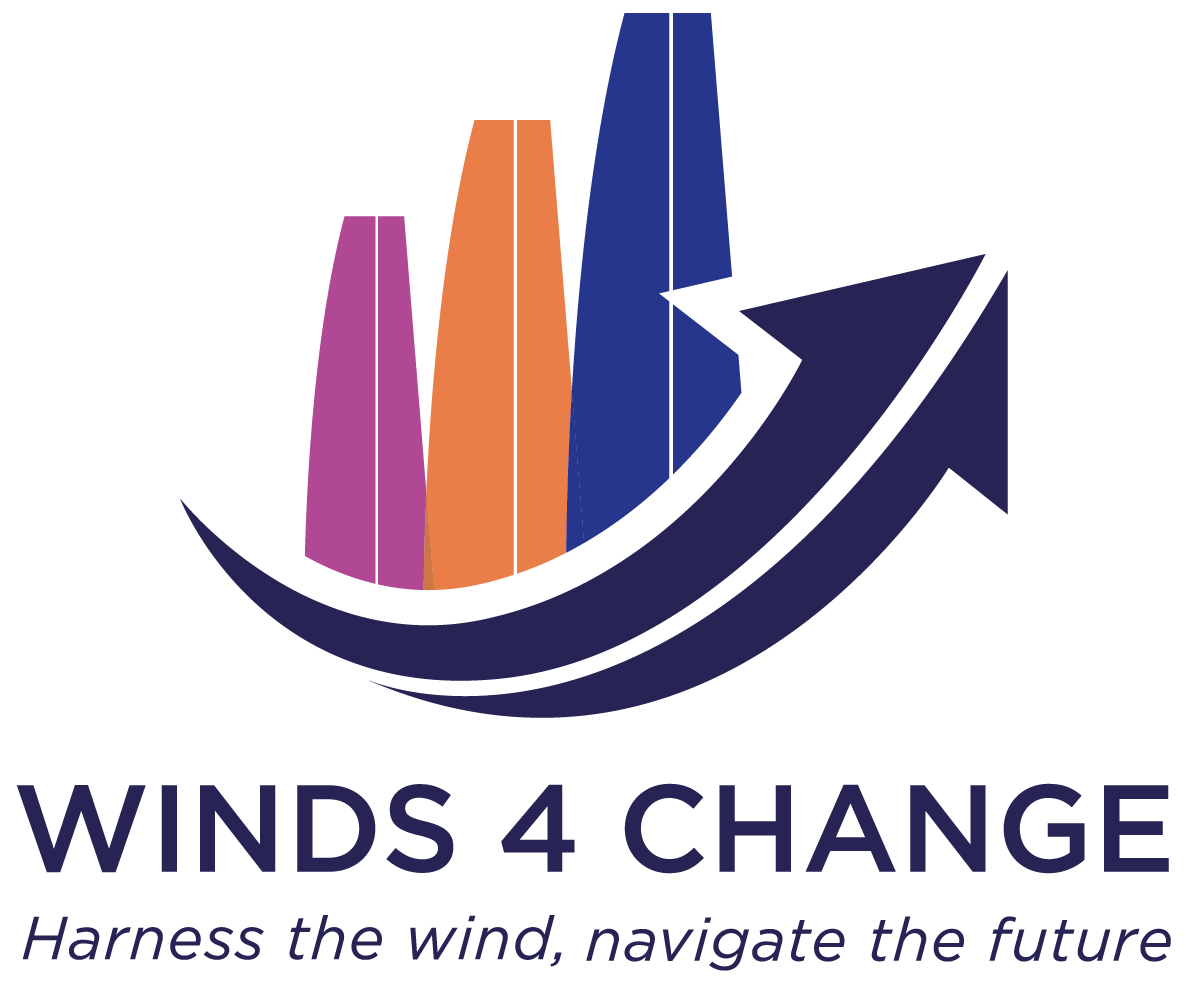"Winds for Change" – Scaling High-Tech Wind Propulsion for Commercial Shipping - Creating a playbook for the Dutch Maritime Economy
Why now? - The Call to Action
The shipping industry stands at a critical juncture. Responsible for nearly 3% of global greenhouse gas emissions, it faces increasing pressure to decarbonize while maintaining its pivotal role in global trade. However, fossil-fuel dependency and slow adoption of green technologies threaten the industry's ability to meet climate targets set by the IMO—30% by 2030, 80% by 2040, and complete decarbonization before 2050.
A solution to this problem is wind propulsion. High-tech innovations, like rotor sails, wing sails, and automated kites, used in combination with realtime data and AI bring new efficiencies to harness the power of the wind —nature’s free, renewable energy source—to dramatically reduce fuel consumption and emissions. Yet, its adoption remains limited due to misconceptions about scalability, cost, and integration with existing vessels, maritime workforce, shipyards and supply chains.
The question is no longer “can it work?” but “how do we scale it?”
How?: Pioneering the Future
The ‘Winds for Change’ project brings together research and academia (convened by the world leading wind propulsion labs at TU Delft together with Erasmus University Port transitions department), maritime innovators, technology developers, shipping companies, and policymakers to accelerate the adoption of wind propulsion technologies for shipping in the Netherlands, recognising the Netherlands as a global maritime leader.
The initiative focuses on:
Research pipeline: Showcasing the latest innovations coming out of the Netherland research community led by TU Delft.
Proven Tech: Demonstrating the effectiveness of existing wind propulsion solutions through sharing information about pilot programs and relevant case studies.
Scalability: Addressing barriers like retrofitting costs, business models and operational integration, and global deployment of wind-assisted vessels.
Policy Alignment: Advocating for supportive regulations, financial incentives, and international collaboration to integrate wind propulsion into shipping’s decarbonization strategies at EU and IMO.
Stakeholder Engagement: Partnering with industry leaders, seafarers, financiers and port authorities to ensure a smooth transition to wind-powered shipping
What we will do: Charting the Course
The Winds for Change project isn’t just about technology—it’s about reimagining maritime transport. By proving the feasibility of large-scale wind propulsion on commercial ships, the project aims to reshape perceptions of sustainability in commercial shipping and support the business environment to make it happen.
Our story is told through:
Trailblazer Vessels: Real-world deployments of wind-assisted ships showcasing up to 30% fuel savings and new designs that can reach 80% or more.
Collaborative Innovation: Industry roundtables convened by academia (TU Delft and Erasmus University) with workshops joining the dots to integrate wind propulsion across fleets.
Global Outreach: Inspiring stakeholders through multimedia campaigns, exhibitions, and events like Sail Amsterdam and Wereldhaven dagen, highlighting wind propulsion’s potential to deliver blue economy growth for the Netherlands and the world.
Scaling up: Catching the Wind
The wind powered the dawn of the global shipping industry. Today technology to harvest the wind on ships has evolved to power the new era of cleaner, greener, and more efficient shipping. But to succeed, we need collective momentum. Winds for Change invites shipowners, investors, policymakers, educators and innovators to join the movement. Together, we can scale wind propulsion, train a new workforce to use the wind and chart a renewable course for the maritime industry.
The Winds for Change story culminates in a blueprint for scaling wind propulsion globally, proving that decarbonization isn’t just necessary—it’s achievable, transformative, a win for the planet and our economy.

